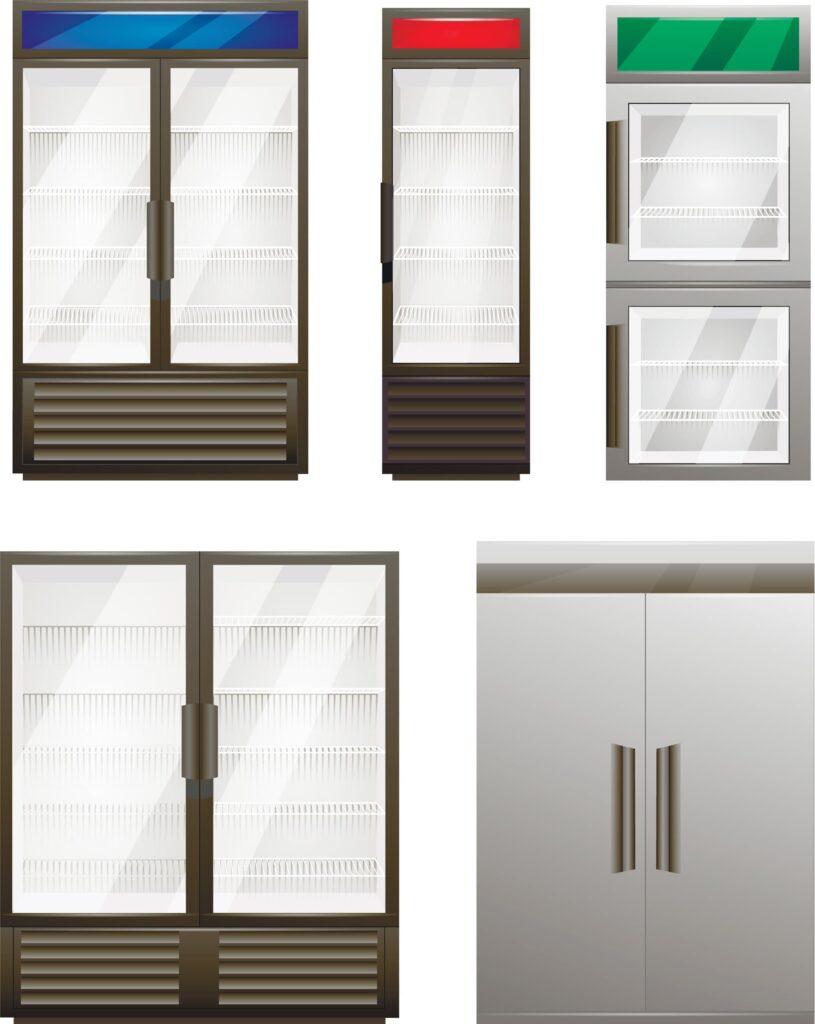
Refrigerators are essential in the commercial food industry, especially if you run a restaurant, food truck or catering service. They provide optimal food storage and keep food at the right temperature, which helps you avoid spoilage. Moreover, commercial refrigerators have larger and stronger compressors than the ones found in traditional refrigerators. This helps to enhance the lifespan of your food and enhance the flavor.
There are also a variety of fridges available on the market. For instance, display coolers can help retail businesses sell product. It’s crucial for commercial business owners to look for a fridge that meets their needs and budget. Read on to learn about the different types of commercial refrigerators available on the market.
Types of Commercial Refrigerators
Reach-In
Reach-in fridges are standalone units that are available in various configurations and sizes. For example, there are upright and under-counter models. They’re made from stainless steel, aluminum and glass-reinforced plastic. They are designed to provide storage for a variety of ingredients including produce, meat and more. These refrigerators have one or more doors, and the shelves can usually be configured to any height. You can choose between glass and solid doors for your unit.
Display
Display refrigerators allow you to showcase beverages and food items while keeping them fresh. Since they keep your products organized and brightly lit, they’re also a great way to get customers to make impulse purchases. These fridges are available with one, two or three doors, depending on your space and needs.
Refrigerated Chef Bases/Prep Tables
Chef bases and prep tables are units that are placed in the prep area. This means you can refrigerate ingredients and conveniently access them in the same place, which helps keep a smooth workflow. For example, you can use the top of the unit for prepping and keep ingredients inside the fridge so they can stay fresh. These units help save space and usually come with drawers to make it easy for staff members to access food. Chef bases and prep tables are often used to prepare pizzas, sandwiches and salads.
Bar/Undercounter
These refrigerators are used by bars. An undercounter refrigerator is a great way to keep your beverages cool while displaying them to customers. This is because many models feature glass doors so patrons can see what product you have available, such as wine, beer and soda. They also make it easy for staff members to access beverages. Bar and undercounter refrigerators come in single, double or triple door models, depending on your preferences.
Medical Fridges
Medical refrigerators help enhance the lifespan of medication and keep it cool. They are often used in hospitals, clinics, pharmacies and other medical facilities. These upright units are available in various sizes so you can select the right one for your space. They include user-friendly features and work to maintain optimal temperature for highly sensitive items. Moreover, you can choose between glass and solid doors for these units.
If you’re looking to purchase a fridge for your business, Iron Mountain Refrigeration & Equipment carries many types of commercial refrigerators. All products are professional-grade and highly durable. Rest assured they can enhance your overall workflow and business efficiency. Additionally, we are confident in our refrigeration equipment, and provide a warranty with every purchase.
Browse fridges or get in touch with us to learn more!
Refrigeration for Specific Business Needs
Refrigeration is essential in industries such as food service, retail and manufacturing, where temperature control can affect everything from food safety to energy costs. Selecting the right commercial refrigerator impacts daily operations, helping businesses keep products fresh, safe and accessible. Here, we dive into why choosing the proper commercial refrigeration system is vital for restaurants, large-scale industries and grocery stores.
Why is Choosing the Right Refrigeration System Critical for Restaurants?
Restaurants rely on refrigeration to ensure food safety, maintain quality and comply with regulatory standards. When choosing a refrigeration solution, restaurant owners need commercial kitchen cooler appliances & equipment that meet their specific operational demands. For instance, walk-in refrigerators allow for bulk storage, while undercounter refrigerators and bar refrigerators make it easy to access frequently used ingredients in busy kitchen areas.
Restaurants must maintain strict temperature control to prevent bacterial growth, and choosing the right refrigeration equipment is critical. Versatile refrigeration units, such as reach-in freezers or merchandising refrigerators, ensure that businesses meet these regulatory standards, maintaining food safety while optimizing kitchen efficiency. Investing in reliable, energy-efficient refrigerators with quick cooling capabilities can also help reduce food waste, making a tangible impact on the bottom line.
How Do Industrial Refrigeration Units Support Large-Scale Operations?
Industrial refrigeration systems support high-demand sectors, such as food processing and pharmaceuticals. These industries require powerful, durable refrigeration systems capable of maintaining consistent temperatures over long periods. Industrial operations benefit from commercial refrigeration systems designed for large-scale cooling, such as blast chillers or low-temperature storage units.
In such environments, the durability and capacity of commercial refrigeration equipment are paramount. For example, counter refrigerators or specialized industrial refrigerators can keep products at stable temperatures, essential for preserving quality and preventing spoilage.
Energy efficiency is also critical. Modern systems integrate features like variable-speed compressors to minimize power usage without compromising performance.
What Considerations Should Be Made When Selecting Refrigeration for Grocery Stores?
Grocery stores require refrigeration systems that offer both storage and accessibility to customers. The types of commercial refrigerators needed range from display units for dairy and produce to counter refrigerators for deli and meat products. Grocery store refrigeration systems need to be versatile, as they often need to keep different types of products at specific temperatures.
Energy efficiency is also a top priority, as refrigeration equipment in grocery stores can be a significant contributor to overhead costs. Grocery stores can benefit from energy-saving features, such as LED lighting, high-efficiency compressors and advanced temperature controls. Properly selected refrigeration systems help enhance customer experience and support operational efficiency, making refrigeration a critical element of any grocery business.
Refrigeration Maintenance and Efficiency
Regular maintenance of commercial refrigeration systems is essential to keep them running smoothly, reduce operational costs and extend their lifespan. Here, we explore how proper maintenance can make a difference and look at ways to optimize efficiency in daily operations.
How Can Regular Maintenance Extend the Lifespan of Commercial Refrigerators?
Preventive maintenance is crucial for the longevity of commercial refrigerators. This includes routine inspections, cleaning coils, checking refrigerant levels and ensuring seals are intact. Even seemingly minor issues, like a loose door seal, can impact the performance of a commercial refrigerator, causing it to work harder and wear out faster.
For restaurant and grocery store owners, routine maintenance can prevent unexpected breakdowns, helping businesses avoid costly repairs and downtime. Many commercial refrigeration systems also include diagnostic tools that alert users to potential issues, allowing for proactive repairs and extending the life of the equipment.
What Are the Best Practices for Energy-Efficient Refrigeration?
Energy-efficient refrigeration practices can make a substantial difference in operational costs. Setting the right temperatures—typically 35°F to 38°F for cooling and 0°F for freezing—prevents the refrigerator from overworking and consuming excess energy. Organizing storage to minimize door openings, sealing doors tightly and placing units away from heat sources further contribute to energy savings.
Many businesses are turning to smart refrigeration technology, which allows for real-time monitoring and adjustments based on usage. These systems can adjust energy output to match demand, reducing energy consumption without compromising product quality. This shift toward energy-efficient refrigeration is especially beneficial for large facilities, like grocery stores or restaurants, where refrigeration represents a significant portion of utility expenses.
How Does Smart Refrigeration Technology Contribute to Efficiency?
Smart technology has revolutionized commercial refrigeration systems, introducing automated controls, diagnostics and real-time monitoring. By installing sensors and smart controllers, businesses can optimize temperature management, reducing the risk of spoilage or breakdowns. This technology enables commercial fridges to detect performance inefficiencies and notify staff of necessary maintenance tasks.
Smart refrigeration technology also contributes to energy efficiency. Some systems include adaptive compressors, which adjust energy consumption based on real-time needs. This capability is valuable for businesses looking to minimize energy costs while maintaining high standards for food safety and quality.
Refrigeration Safety and Standards
Adhering to safety standards is essential for businesses using refrigeration, especially in food service, as it ensures the safety of both employees and customers.
What Are the Key Safety Standards for Commercial Refrigeration?
Commercial refrigeration systems must meet standards set by OSHA and the FDA, covering temperature control, refrigerant safety and handling practices. These regulations are crucial for food service and grocery stores, helping businesses protect health, minimize risks and avoid fines. Regular inspections ensure systems meet guidelines and reduce hazards related to refrigeration.
How Do Refrigeration Safety Protocols Protect Businesses and Consumers?
Safety protocols, including regular checks and temperature monitoring, prevent equipment failures and reduce the risk of foodborne illnesses. Monitoring systems alert staff to temperature fluctuations, allowing immediate action to prevent spoilage. Following manufacturer maintenance recommendations further ensures that systems operate safely and efficiently, protecting consumers and reducing waste.
What Are the Legal Requirements for Refrigeration Systems in Food Service?
Food service refrigeration must comply with regulations, such as specific temperature ranges, scheduled maintenance and approved refrigerants. Meeting these standards is vital to pass inspections and avoid penalties, so businesses need reliable equipment capable of meeting stringent requirements.
Refrigeration Repair and Services
Even well-maintained refrigeration systems may require repairs. Understanding common issues and choosing reliable repair services can save businesses time, reduce repair costs and ensure that systems stay operational.
What Are Common Issues That Require Refrigeration Repair?
Commercial refrigerators can experience various issues, such as leaks, temperature fluctuations and motor failures. Detecting these issues early is essential to prevent larger, costlier problems. For instance, temperature inconsistencies may signal a refrigerant leak, while unusual noises can indicate motor trouble.
Routine maintenance helps avoid these issues, but repairs are sometimes unavoidable. It’s essential for businesses to work with reputable refrigeration repair services that can quickly diagnose and resolve problems, keeping equipment functional and avoiding prolonged downtime.
How to Find Reliable Refrigeration Repair Services
Finding a dependable repair service is critical for minimizing disruption. When selecting a repair provider, businesses should consider experience, response time and customer reviews. Technicians with experience in commercial systems are often better equipped to handle complex repairs, providing peace of mind to business owners.
Reliable repair services can also offer preventive maintenance programs that help identify potential issues before they escalate, ultimately reducing repair costs. Businesses can save significantly by investing in a quality repair service that prioritizes long-term performance over quick fixes.
What Factors Affect Refrigeration Repair Costs?
Repair costs vary depending on factors such as the type of refrigeration unit, the nature of the problem, and the availability of replacement parts. Simple repairs, like seal replacements, may be affordable, while more complex issues, such as compressor failure, can be more expensive. Addressing issues promptly helps minimize costs and keeps refrigeration equipment running smoothly.
Emerging Trends in Refrigeration
The refrigeration industry is advancing with innovative technologies that enhance efficiency and sustainability, reshaping how businesses use refrigeration systems.
What Are the Latest Innovations in Commercial Refrigeration?
New technologies, such as eco-friendly refrigerants, solar power and smart temperature controls, are helping businesses reduce energy costs and environmental impact. Features like adaptive compressors and real-time monitoring cut energy usage and extend equipment lifespan, making refrigeration systems more efficient and cost-effective.
How Is the Refrigeration Supply Chain Evolving?
The supply chain has become more automated and optimized, enabling faster delivery and greater customization of refrigeration equipment. This flexibility is especially beneficial for industries with strict requirements, such as food processing, allowing businesses to meet specific needs more efficiently.
What Impact Do Energy-Saving Tips Have on the Industry?
Energy-saving practices, including smart controls and optimal layouts, are becoming standard in refrigeration. These measures reduce energy consumption and operational costs, supporting a more sustainable industry approach that benefits both the environment and businesses.
Maximizing Commercial Refrigeration Success
Choosing the right type of commercial refrigerator is essential for any business, as each industry has unique needs and operational requirements. Proper maintenance and energy-efficient practices help extend the lifespan of refrigeration systems, providing reliable performance and reducing operational costs. As refrigeration technology continues to advance, businesses can expect innovations that enhance sustainability, efficiency and operational flexibility.
With the right commercial refrigeration system from Iron Mountain Refrigeration & Equipment, businesses can maintain product quality, comply with safety regulations and stay competitive.



















